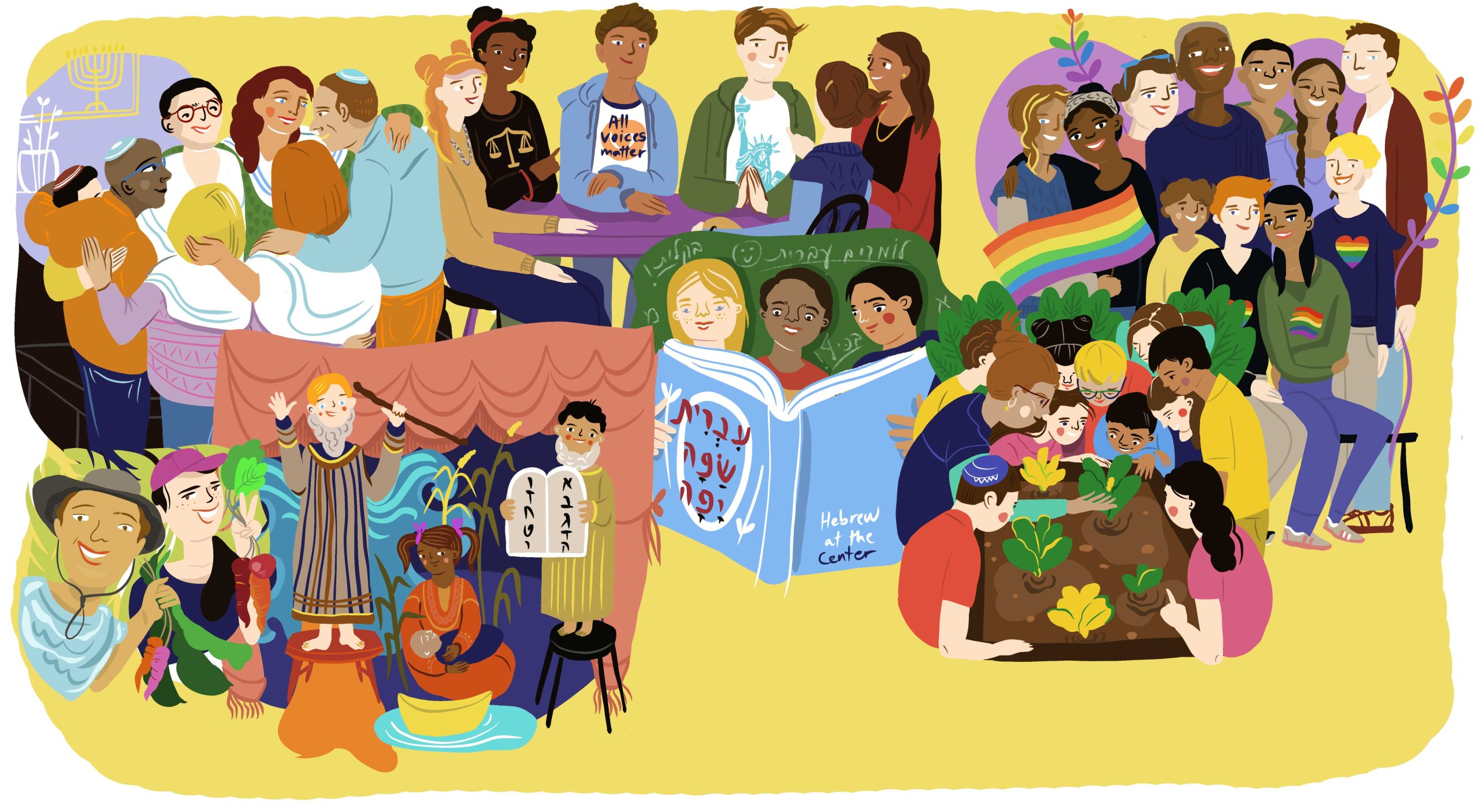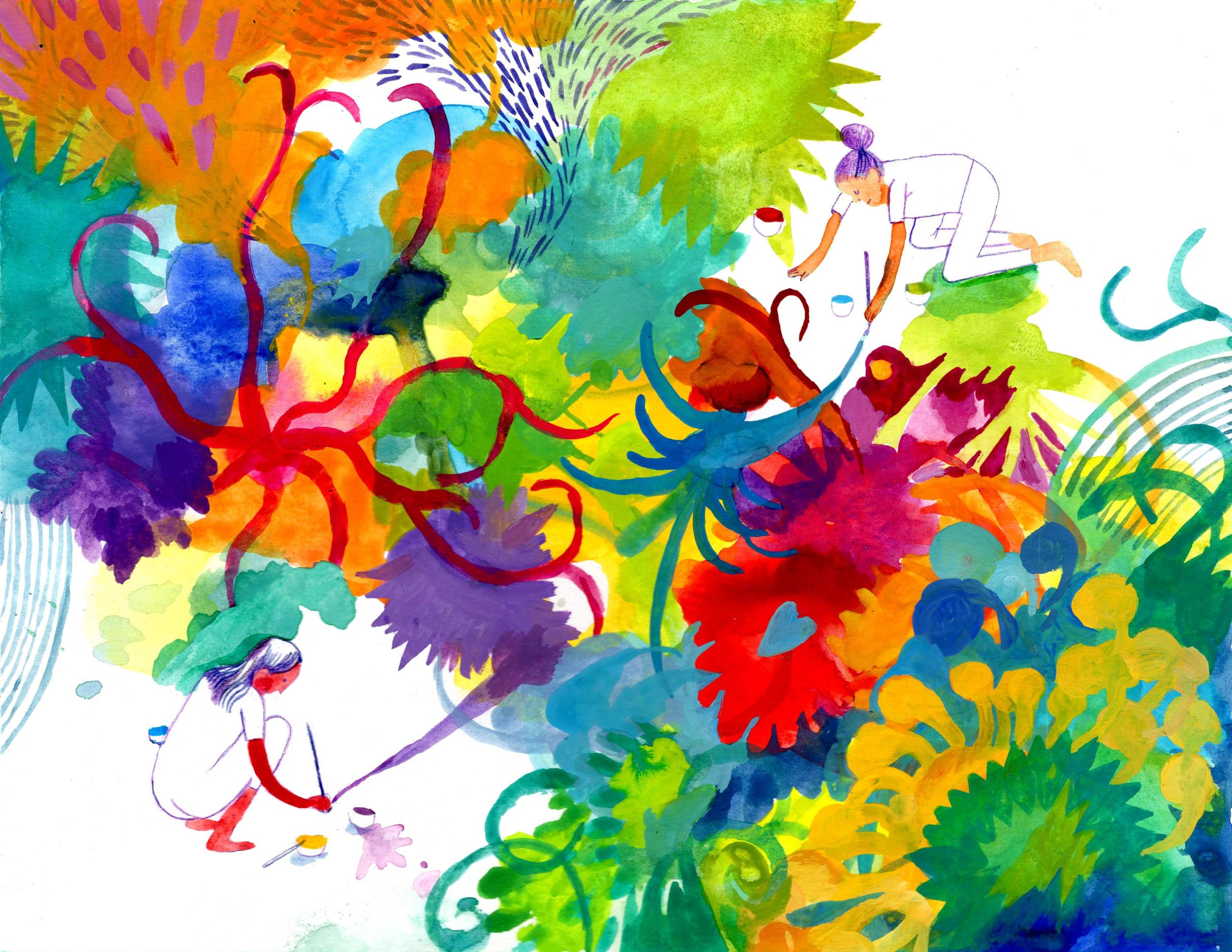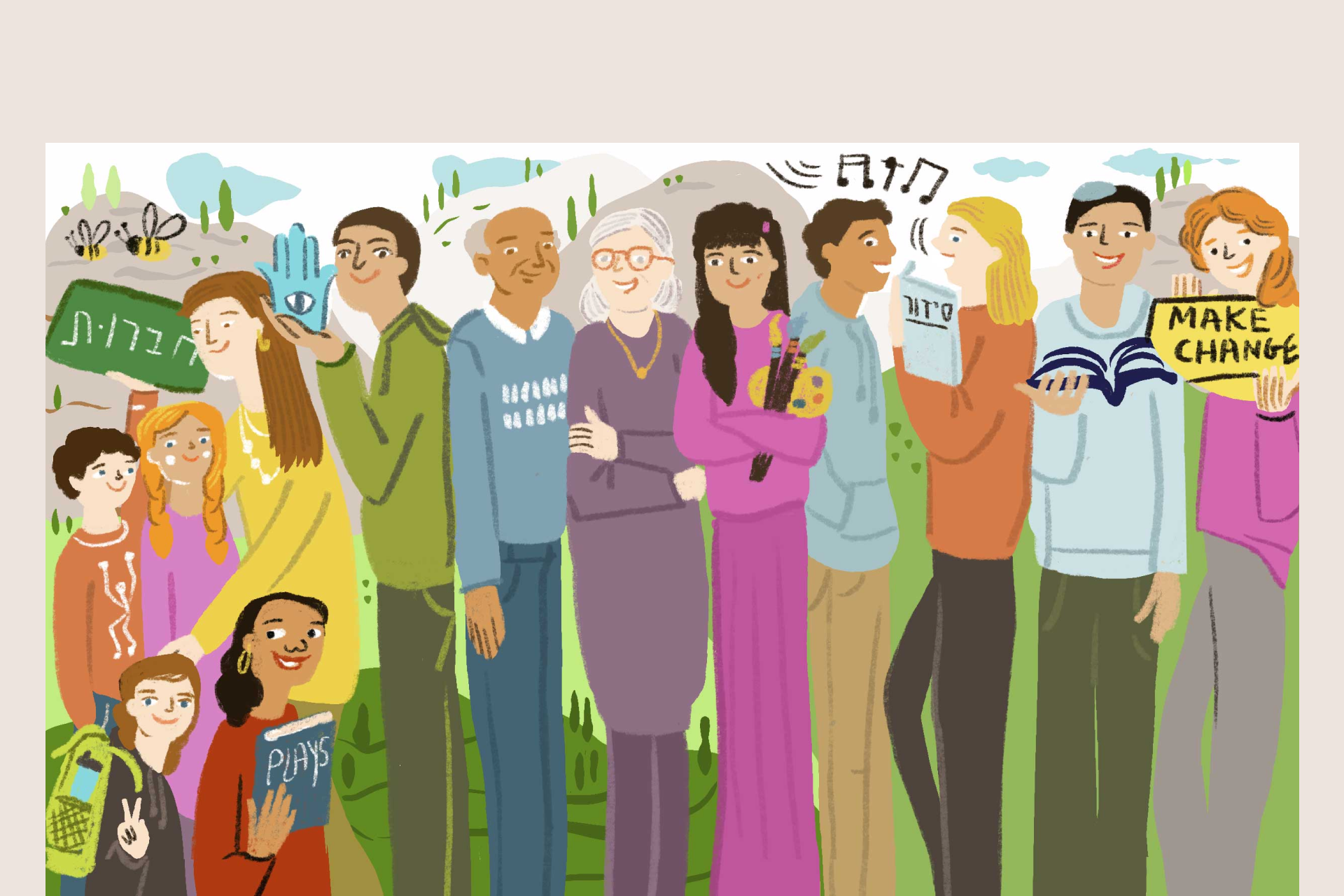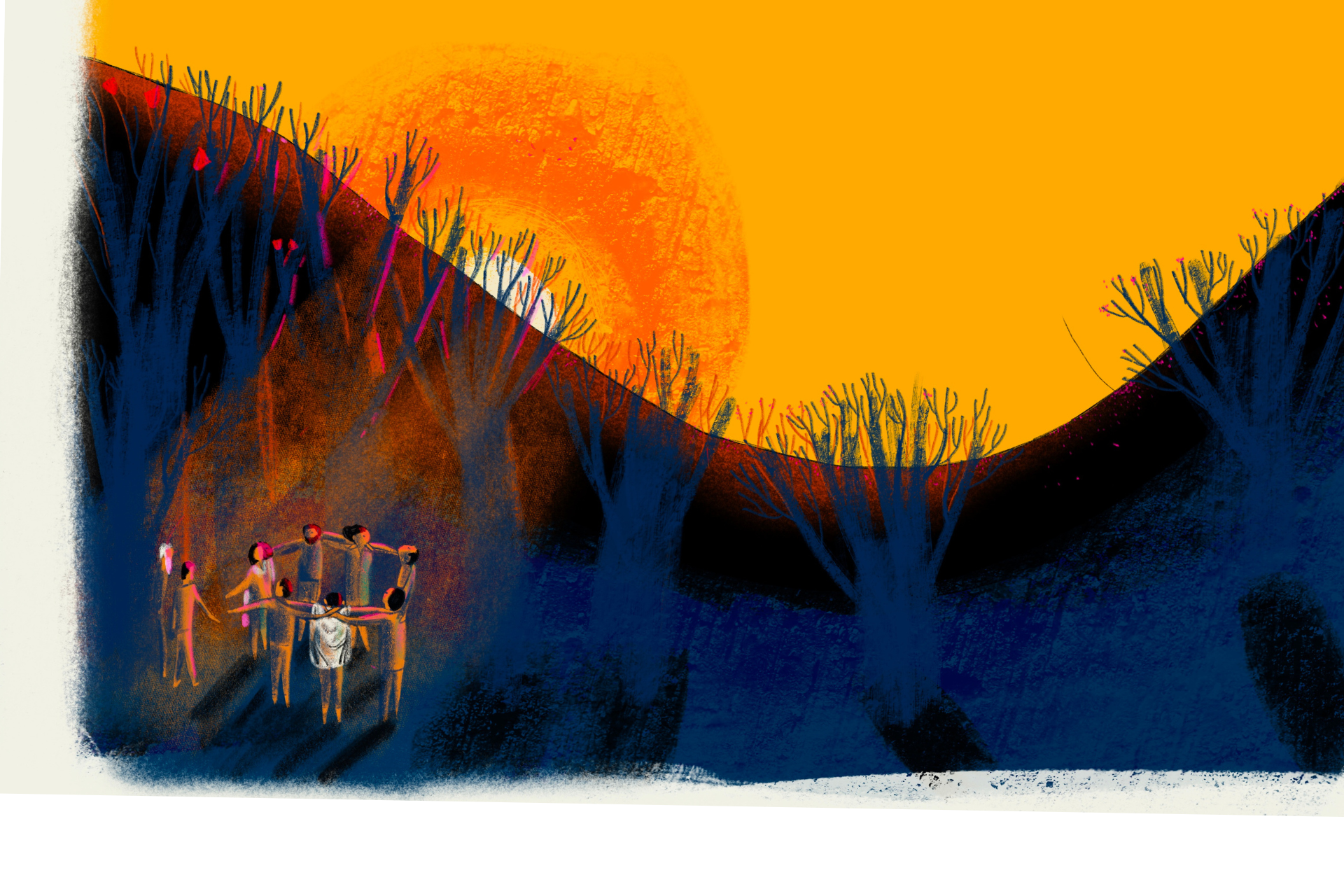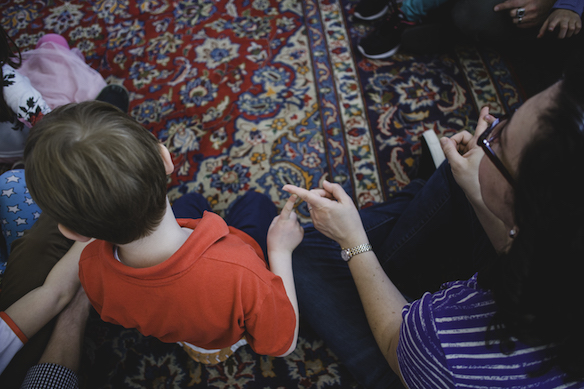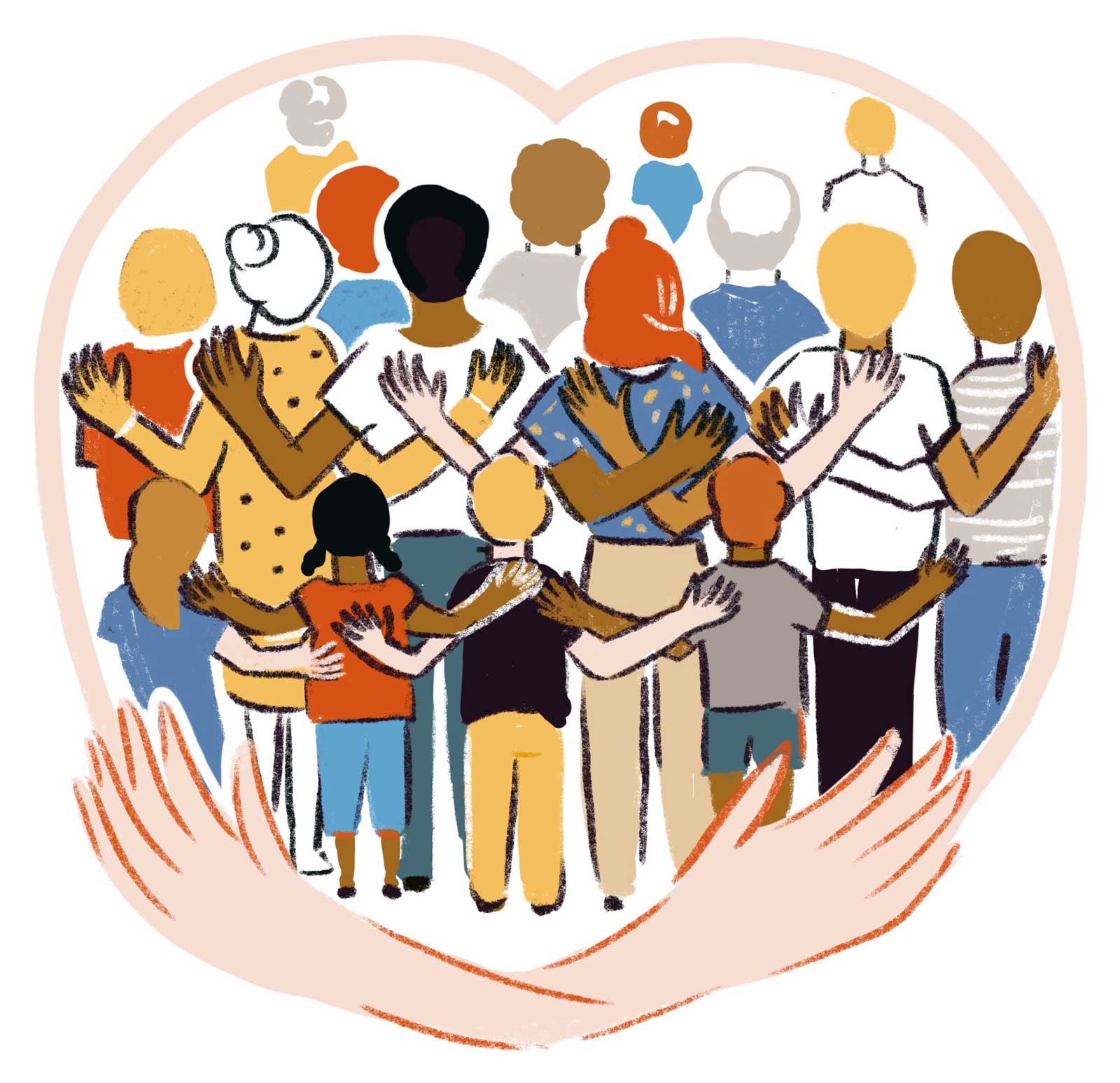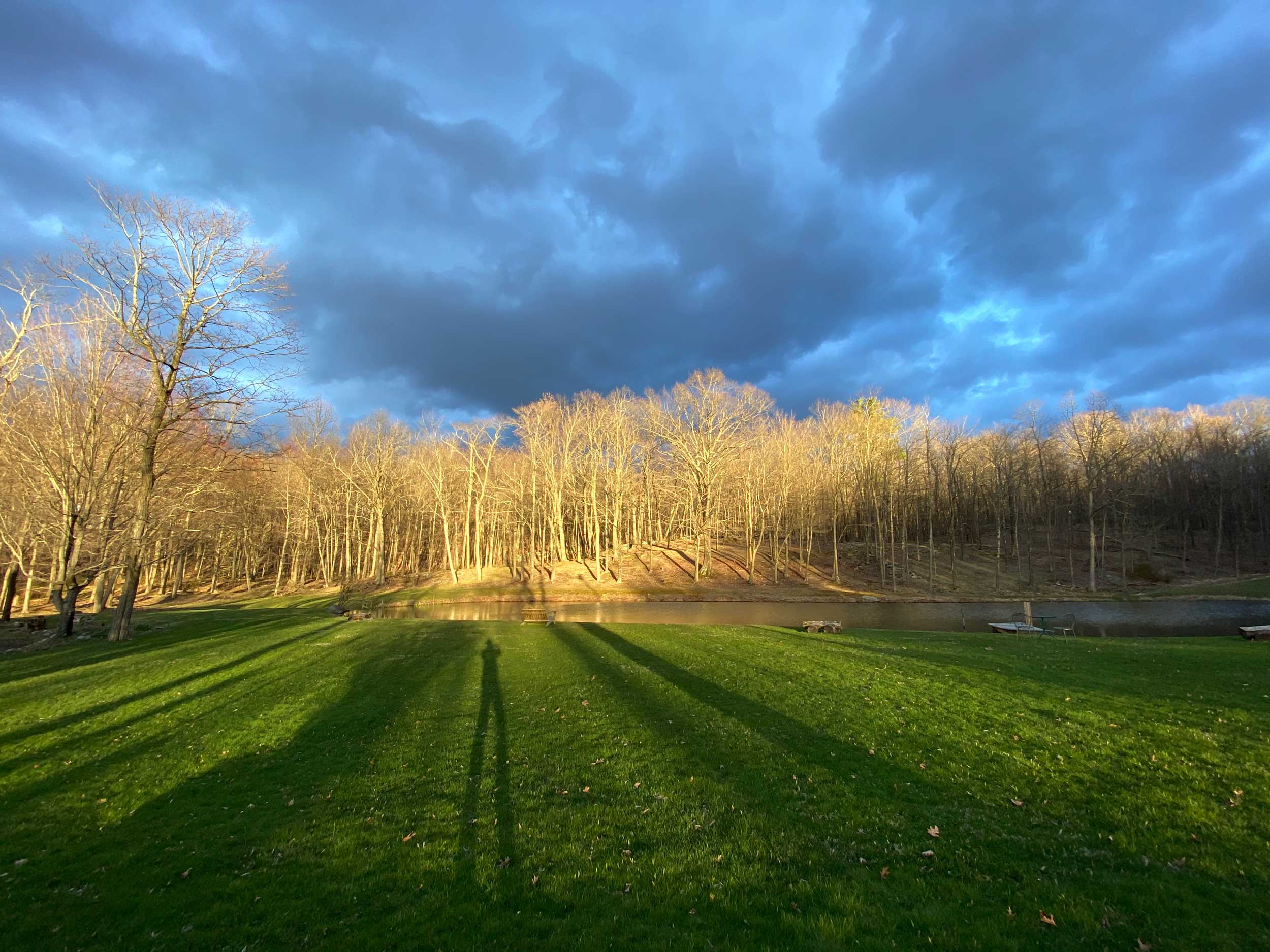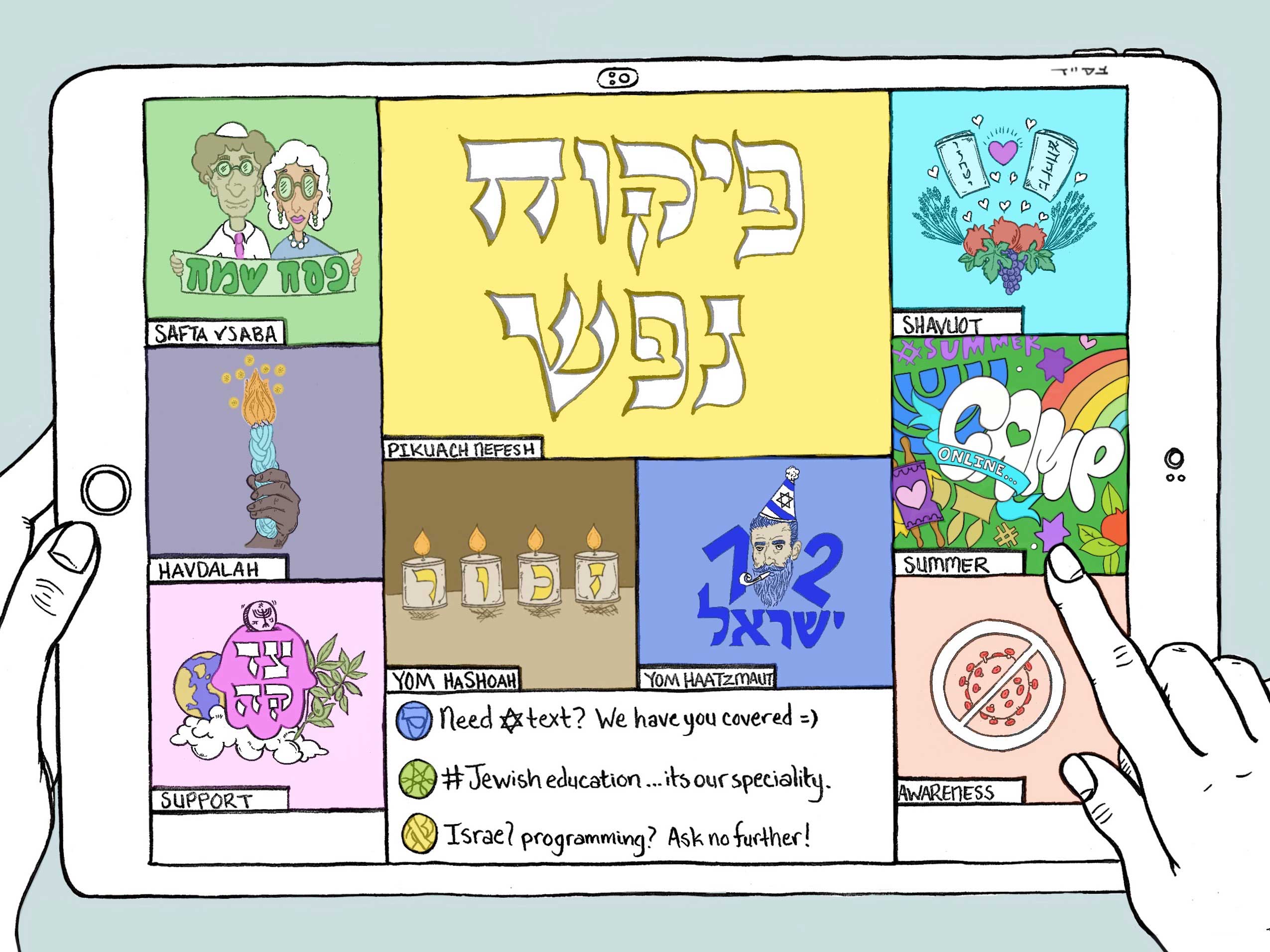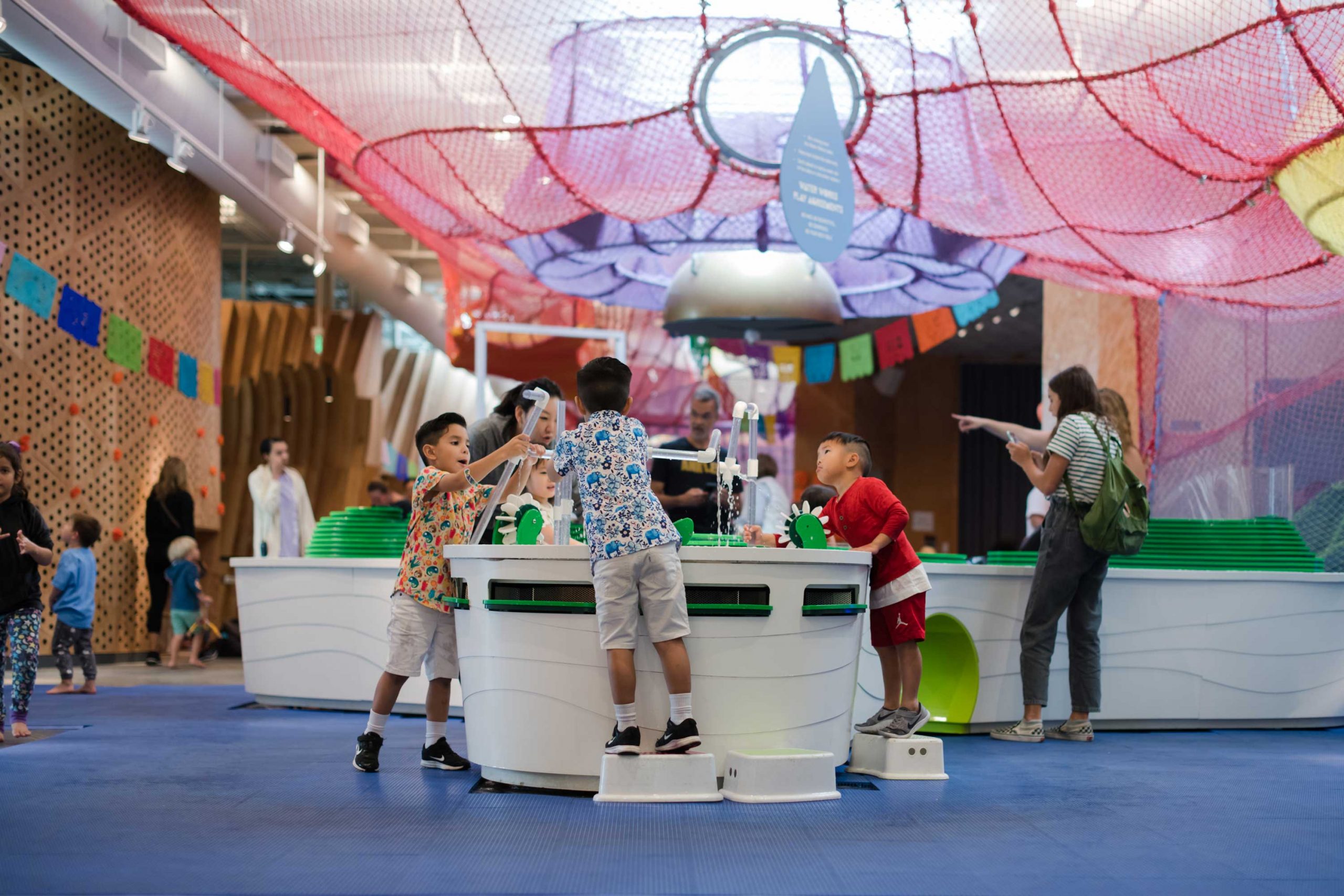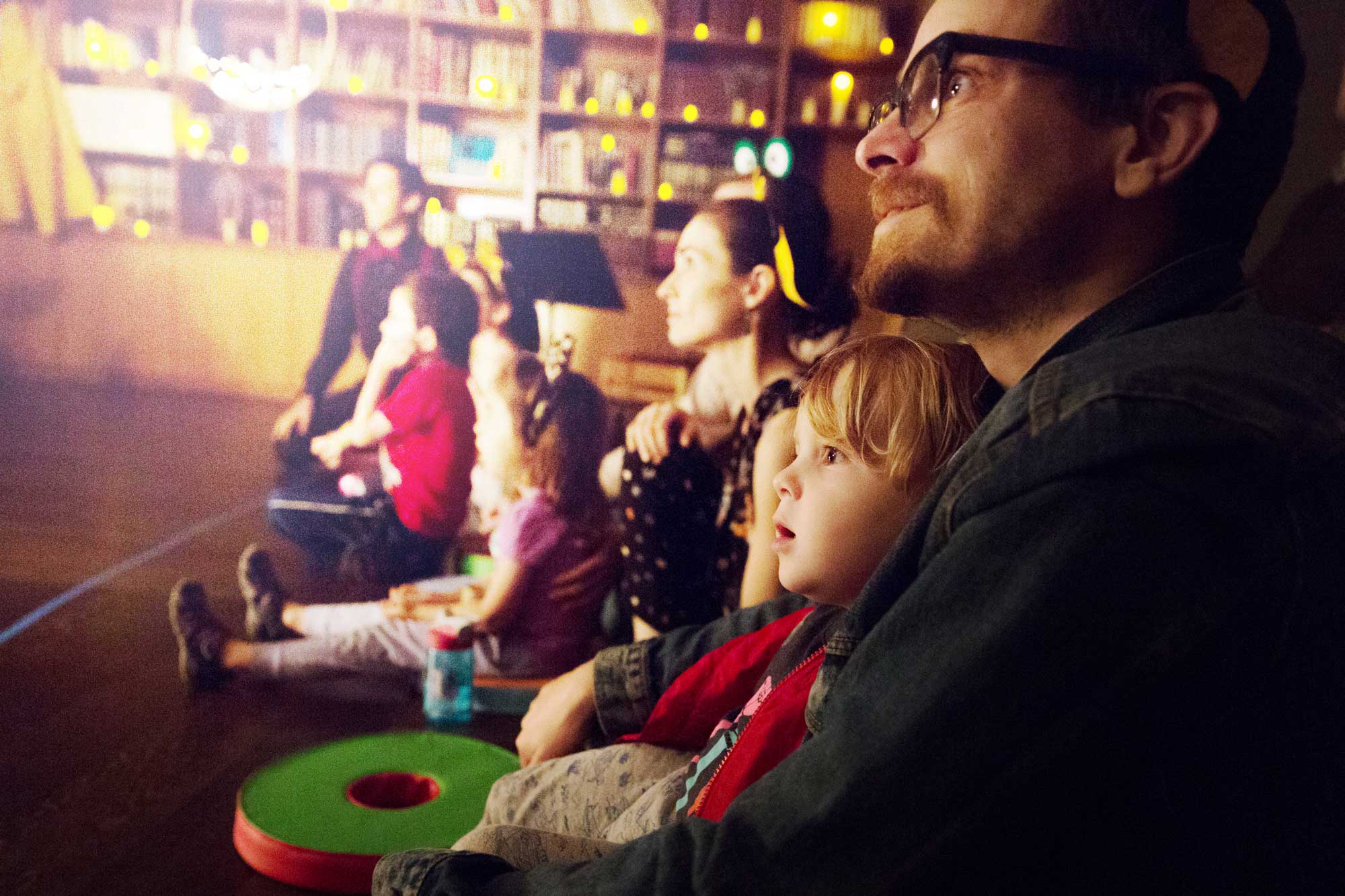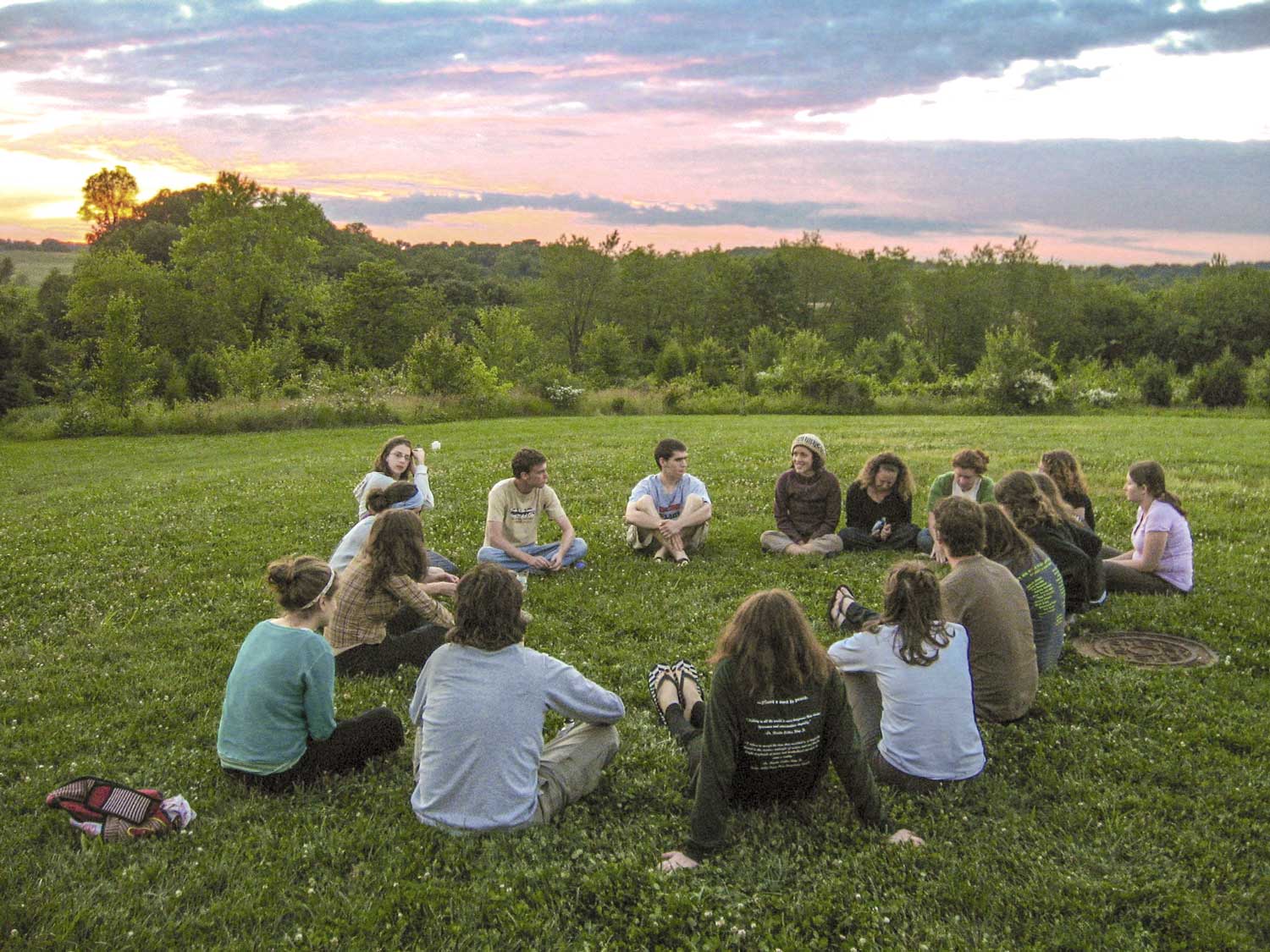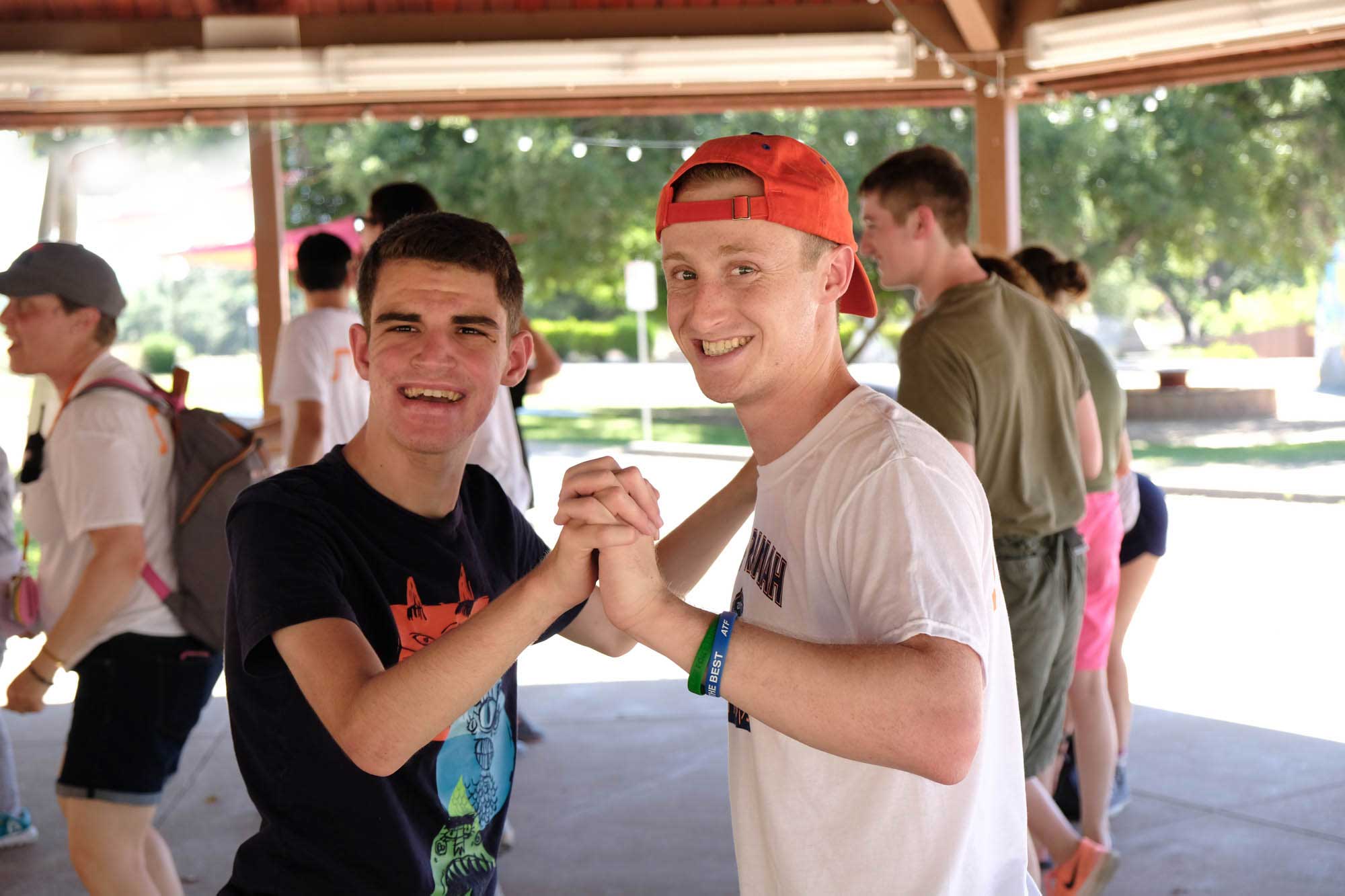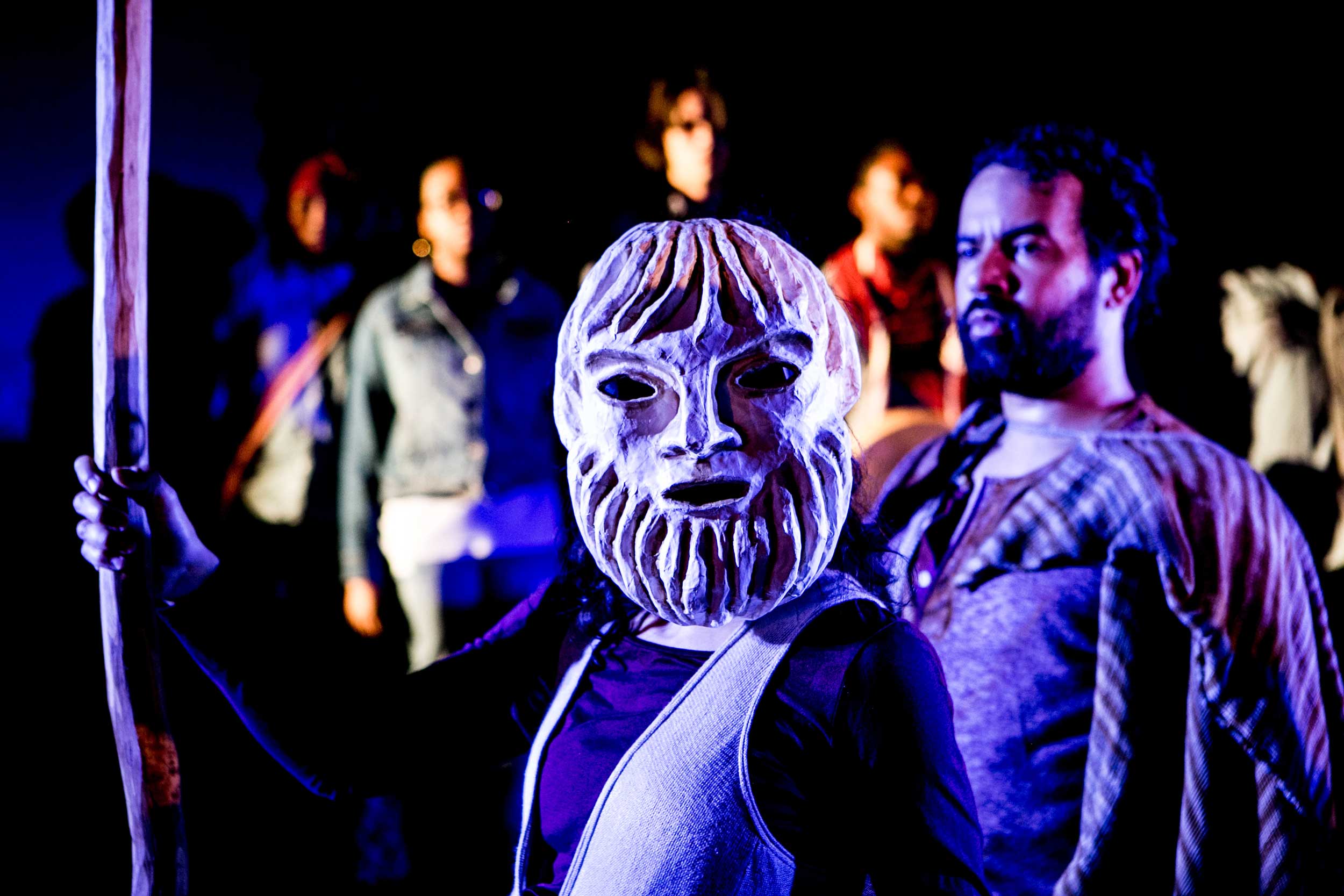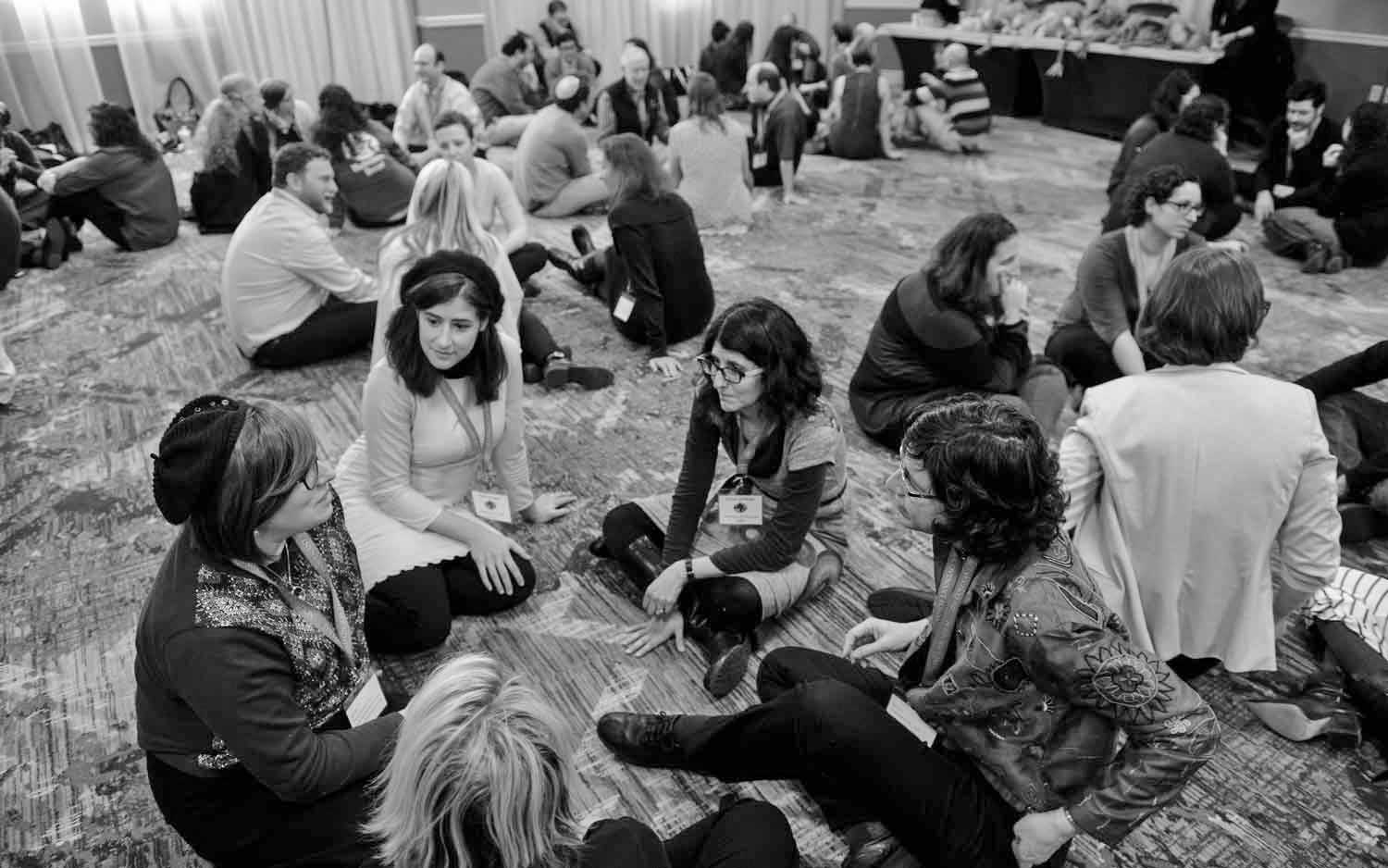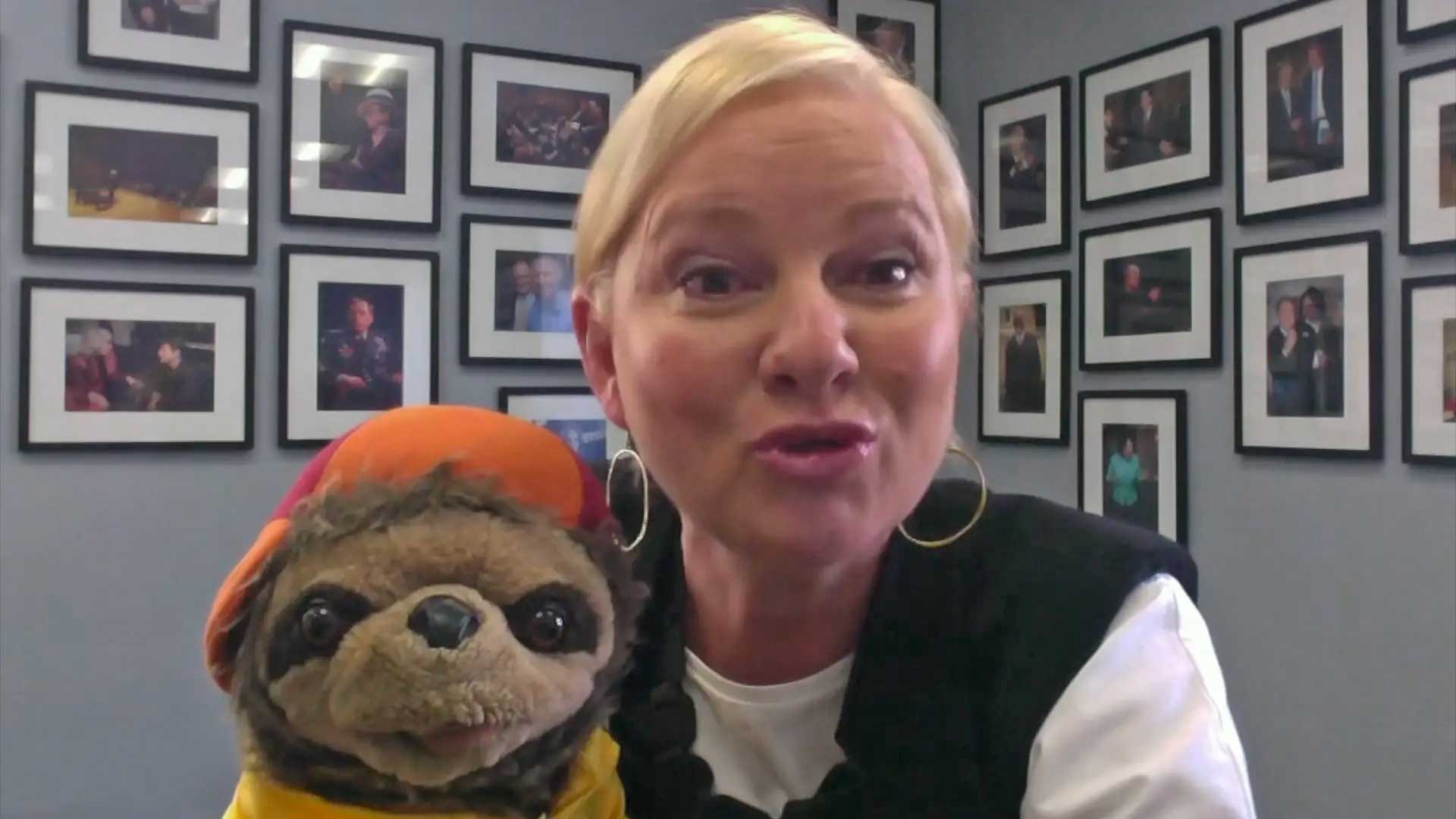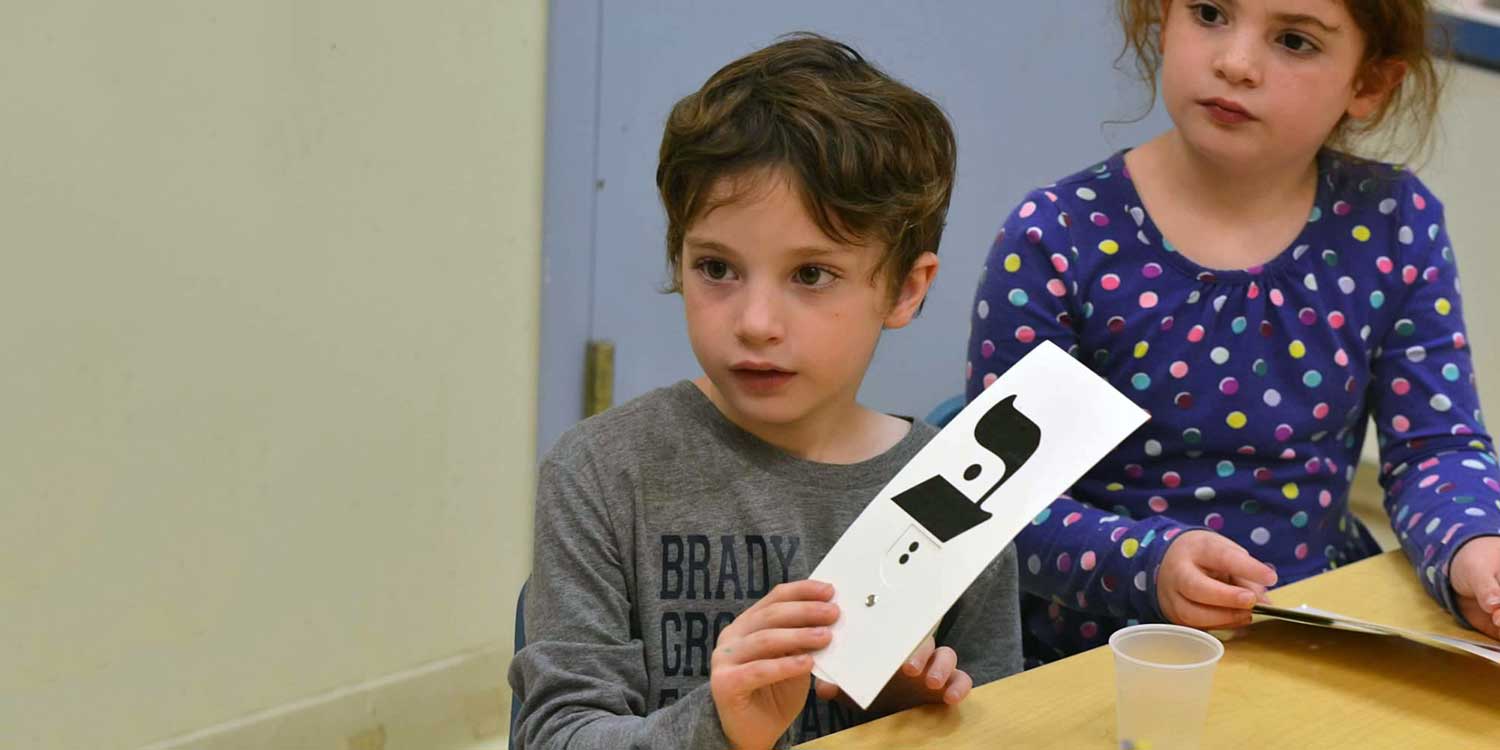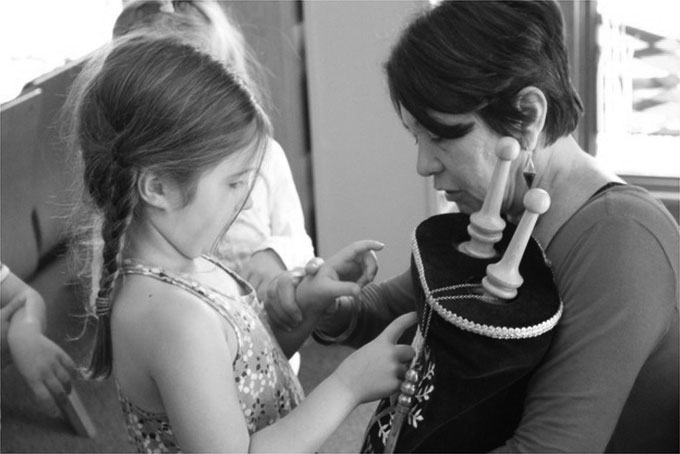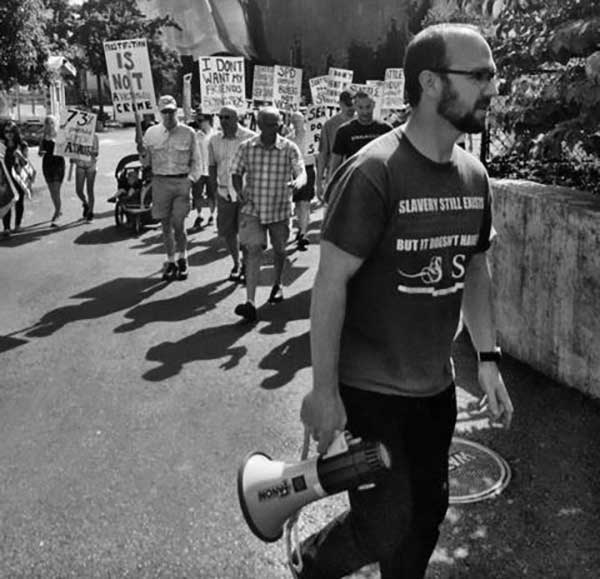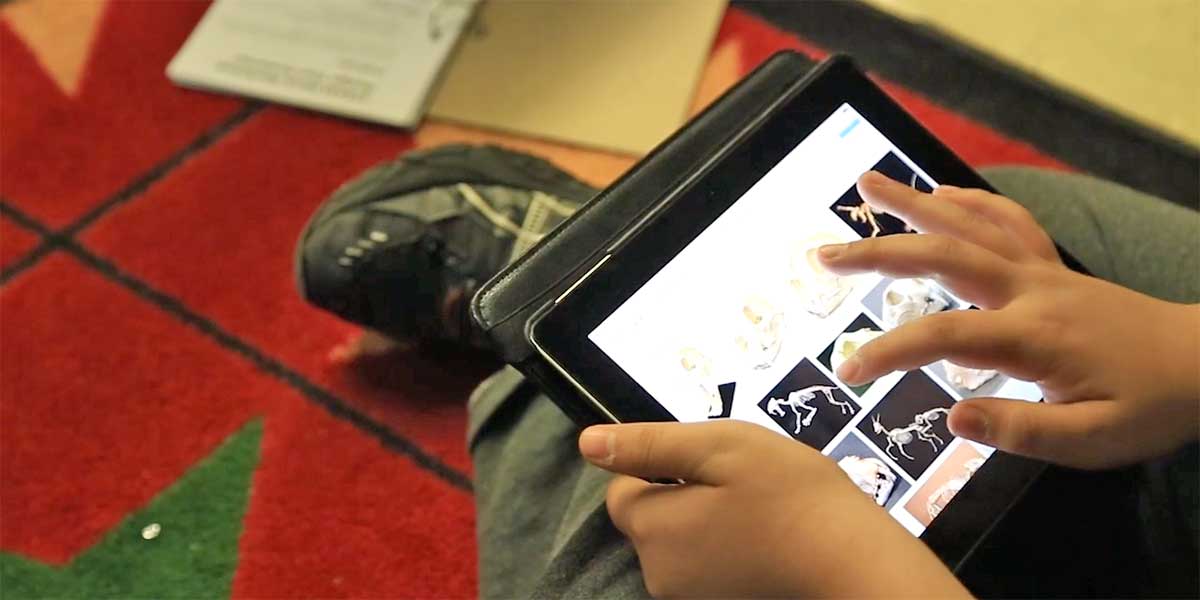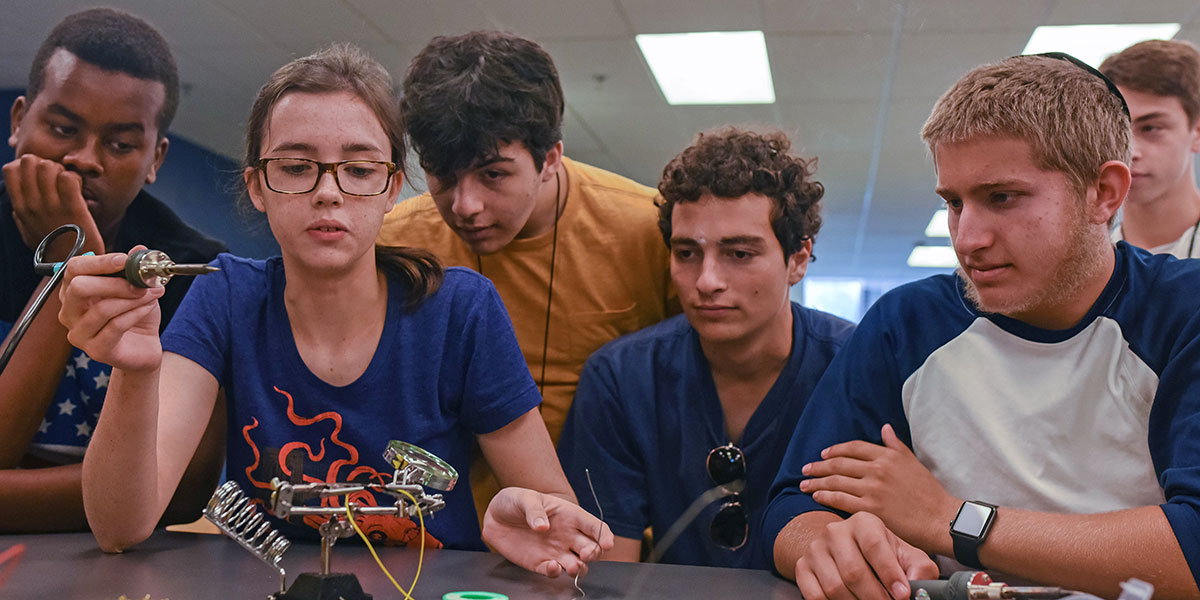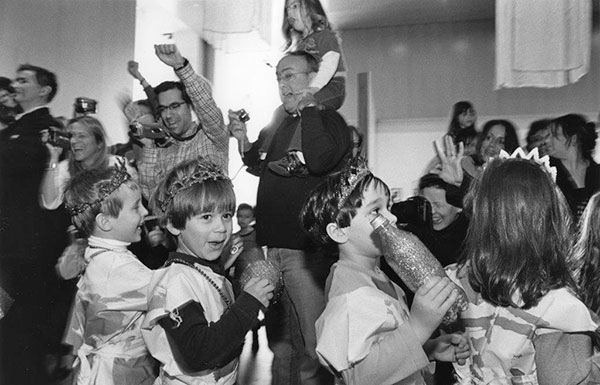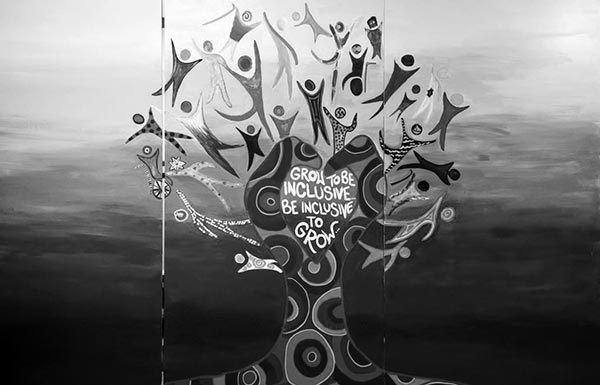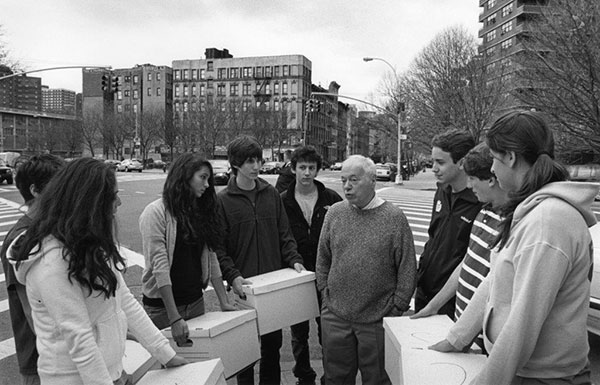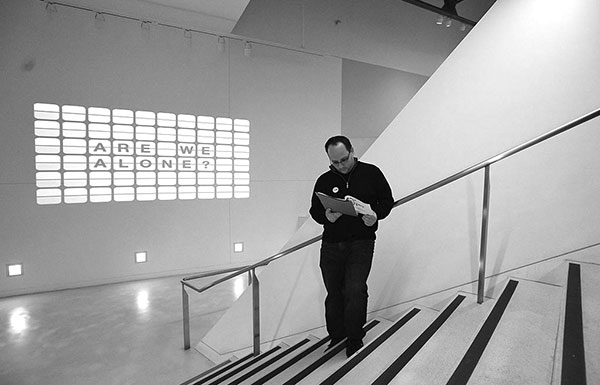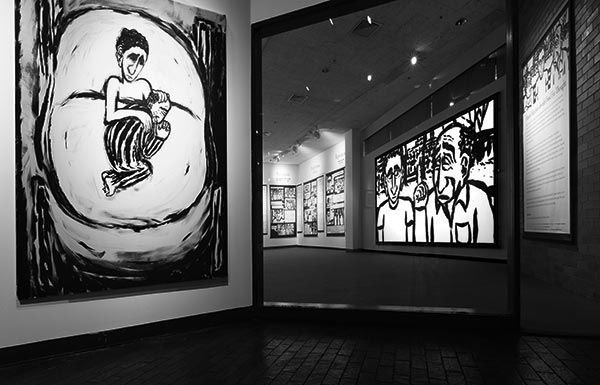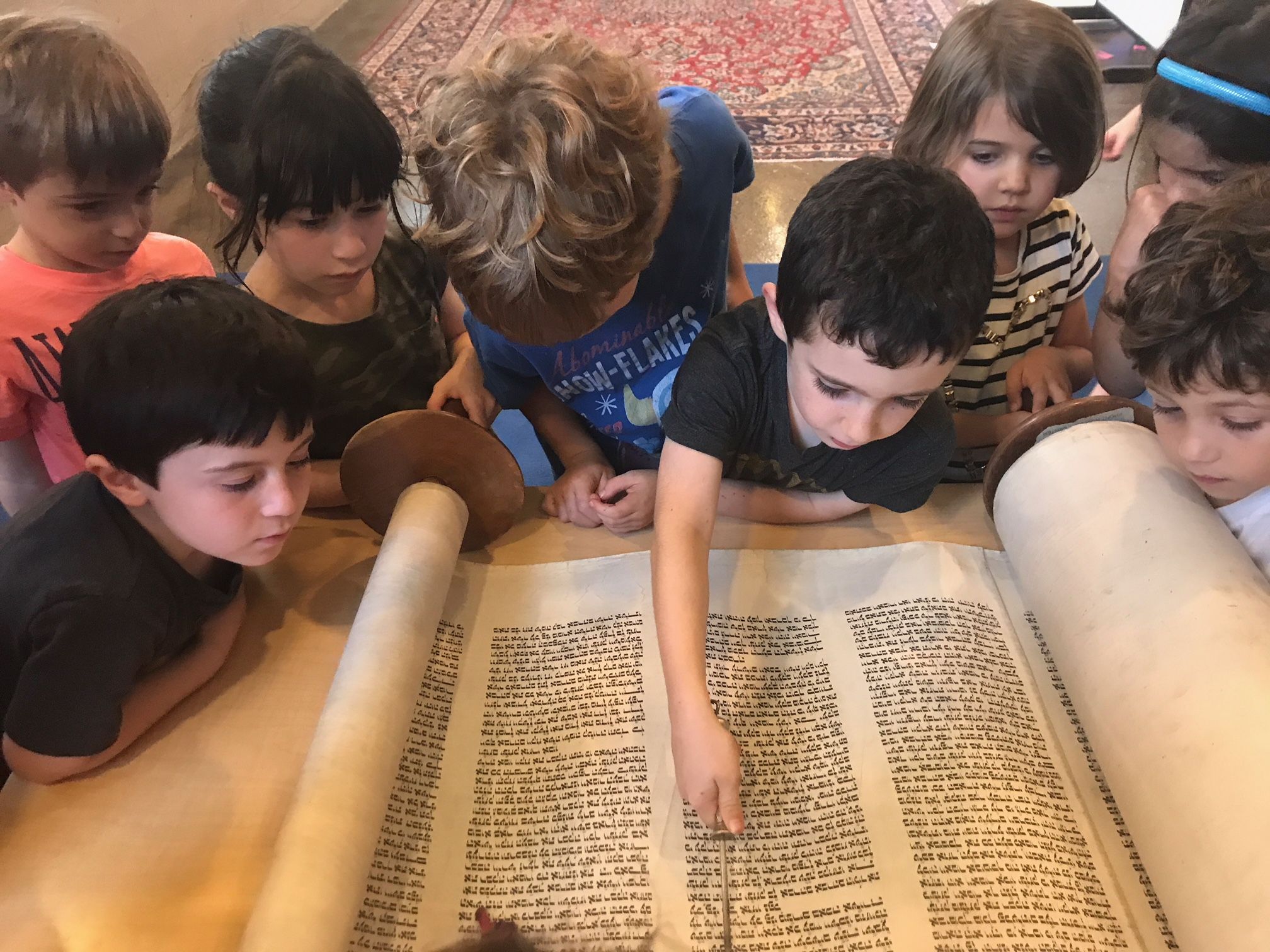
ARTICLE Making Mensches, Building Friendships, On and Off Zoom
Jackie Rassner was taking a walk recently with her daughter when she bumped into one of her colleagues who also has a daughter. The two children attended the same Jewish afterschool program but, due to the pandemic, had only met in the program’s virtual iteration, on Zoom. Despite never having met in person, once they recognized each other as classmates, they ran off immediately and played together for a full hour in the park.
How did these peers have such an instant connection? It’s all thanks to the intensive community building in Mishkan Chicago’s Mensch Academy.
A few years after founding Mishkan Chicago as a radically inclusive spiritual community in 2011, Pomegranate Prize recipient Rabbi Lizzi Heydemann sought to establish Mensch Academy as an educational community grounded in the same values as Mishkan Chicago: welcoming, accessible, and open to each person’s journey to make Judaism their own. After receiving funding to establish the program, Rabbi Heydemann hired Ilana Gleicher-Bloom as the founding Vision Director of Mensch Academy. Before officially opening Mensch, Gleicher-Bloom spent a year on research and development, including visiting 10 different religious schools, reading numerous books, studying trends in education, listening to podcasts, and meeting for coffee with 50 parents who had attended Mishkan Chicago.
Gleicher-Bloom emerged from that year with a dual focus for Mensch: cultivating joyful learning and fostering a deep sense of belonging.
“We want [kids] to feel loved and safe enough to take risks, and kids can’t feel loved and safe enough if adults don’t feel that way too,” said Gleicher-Bloom, who is also a Pomegranate Prize recipient and now serves as a consultant to Mensch.
So from the very beginning of Mensch Academy, teachers (who are actually referred to as facilitators at Mensch, because they are facilitating the learning) have been welcomed into the community as a cohort of learners themselves. Facilitators arrive on site a few hours before every session and spend time engaging in professional development and preparing their lessons for the day. By paying the facilitators for this time, Mensch Academy sends the powerful message that although these individuals may be part-time employees, they are treated with the utmost respect as educators, and are given the time and safe space they need to excel in their profession.
Giving facilitators a sense of belonging includes acknowledging that teachers are full humans, coming to the experience with their own perspectives and interests, Aviva Stein, Mensch’s new director, shared. So, “everything we teach to the students, we learn as a cohort of facilitators first,” she said.
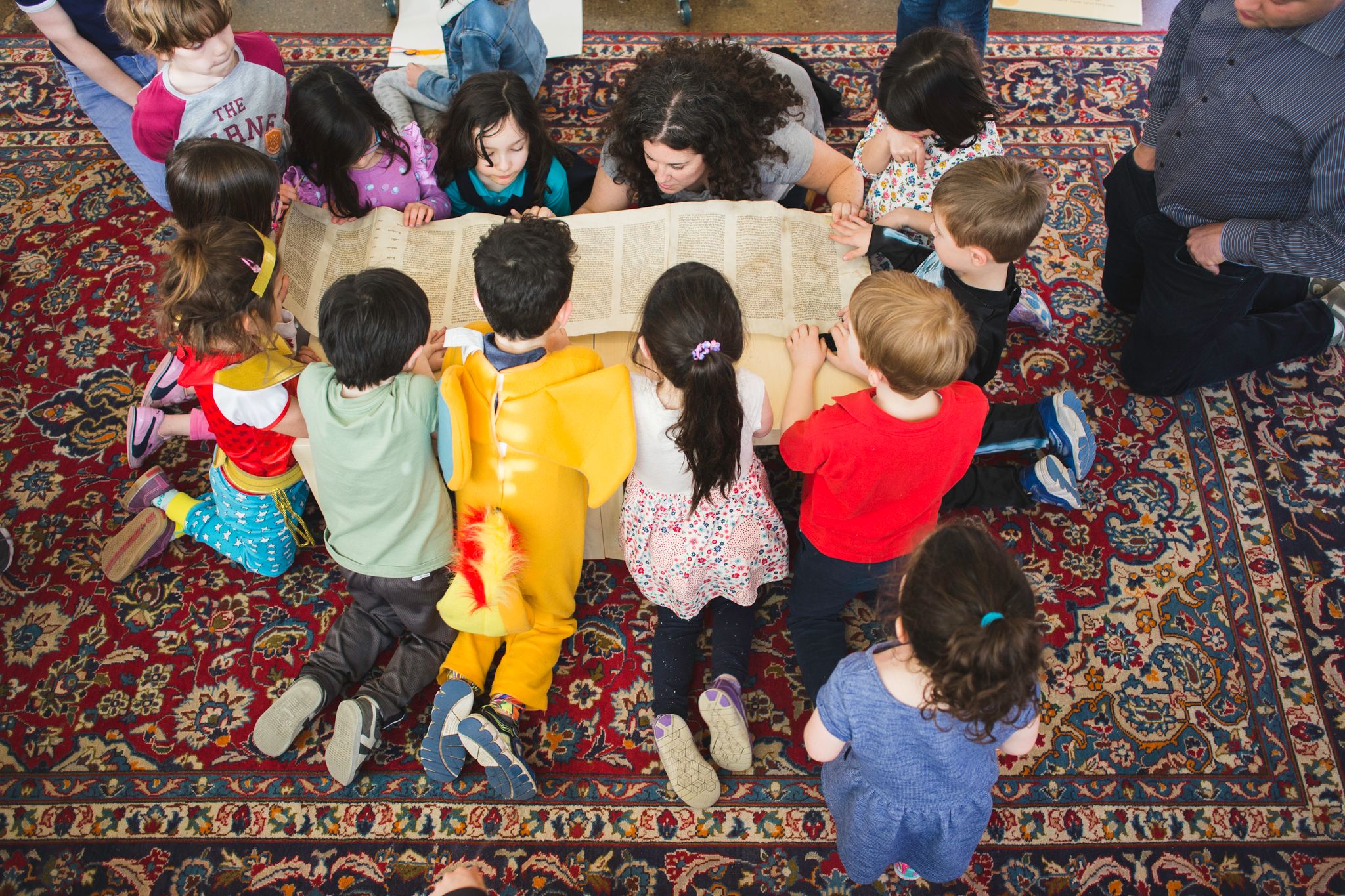
Staff development time also enables the facilitators to hone the specialized skills they need for a Mensch classroom, which typically has very little frontal teaching or learning. Students are usually working in various locations around the room, and two facilitators circulate, asking open-ended questions and taking careful notes about each child. These notes help facilitators get to know their students and build relationships so the students feel seen, heard, safe, secure, and confident.
“Part of speaking to kids is showing that we care about what they say and what they are doing,” Gleicher-Bloom shared. “The second level is learning how they’re learning. How are they interpreting the text? Then you can reflect it back to them.”
Mensch Academy classes meet once a week, and they always begin with tefillah with all the grades together. Next, the children split up into mixed-age groups (Kindergarten & Grade 1, Grade 2 & Grade 3, and so on) and engage in Jewish text learning. Last, the students choose how they are going to experience the text. Sometimes that might be through painting, building, or play, and other times it might be through a more prolonged experience over multiple sessions.
For instance, after studying verses on the ger (stranger), facilitators had a conversation with students about who gerim are today and how best to help them. Students determined that gerim today are refugees. There happened to be a refugee family in the area that wanted to know about free family-friendly places to visit in Chicago, so Mensch students came up with ideas for places to go and halal restaurants nearby. They were able to give the family a whole book to help them find places to go (which was translated by the family’s daughter).
At the beginning of the unit, students had been tempted to donate items to refugee families, but they learned that what they think refugees need might not be what they actually do need, explained Gleicher-Bloom.
Lessons like this one are important to Jackie Rassner, whose daughter attended Mensch Academy for 1st grade and is now in 2nd grade at Mensch. She wants to make sure her children’s Jewish education includes social justice, and “the understanding that being an adult in the Jewish community involves justice work.”
Hannah Bloom-Hirschberg, whose children are now in Kindergarten and 3rd grade, chose Mensch Academy for the learner-centered approach that prepares young people to engage with the world in a Jewish way. Even more important to her, though, was developing relationships.
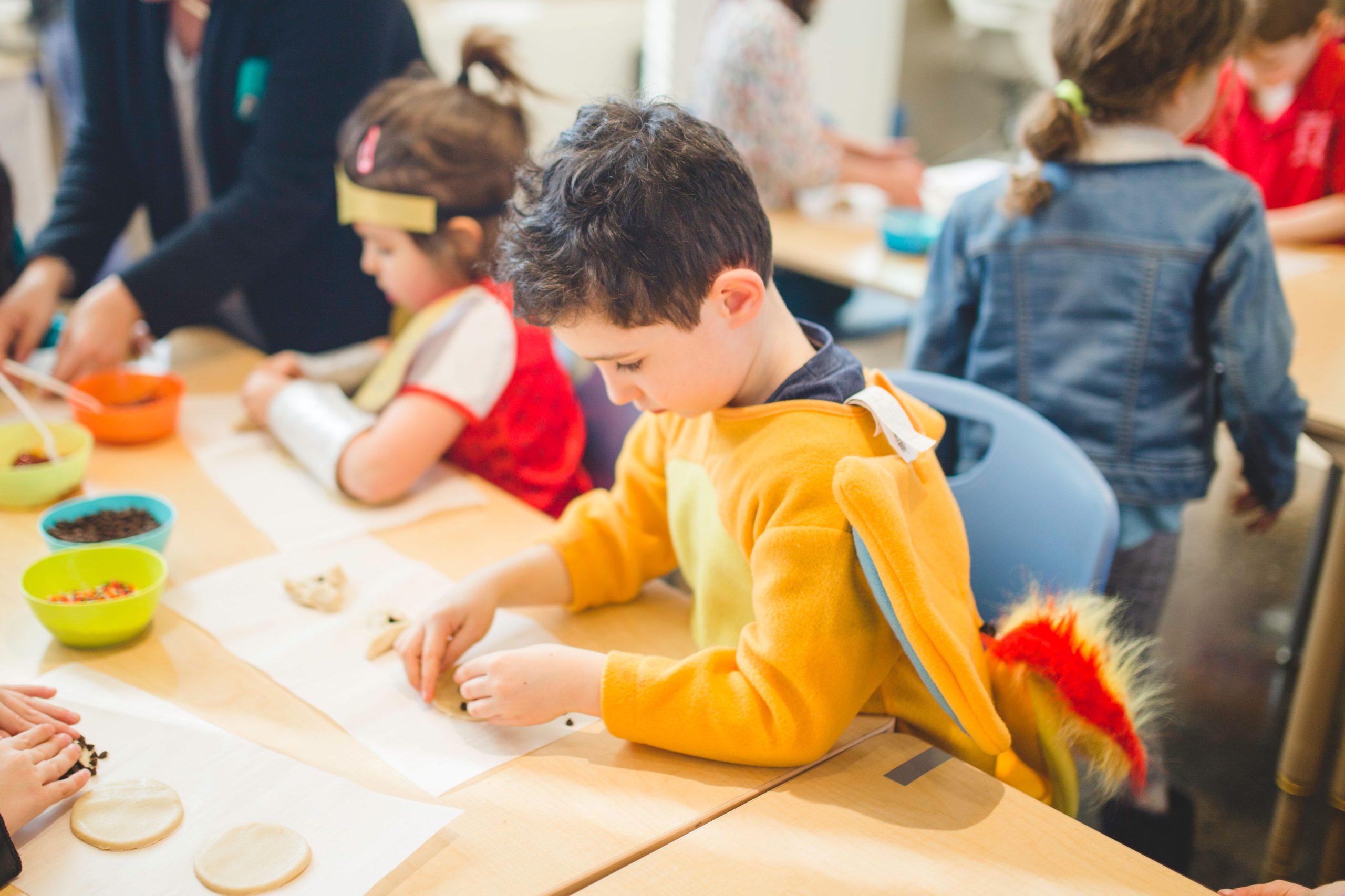
“For us, the highest priority is that [the kids] feel a part of the Jewish community, and the way Mensch is structured really encourages them to build community with each other,” she said.
Pre-Covid, that sense of community was widely evident when Mensch held Sunday showcases at the end of each unit of study. Children would welcome their families and share their learning in an interactive exhibition-type format that included artwork, puzzles, conversation starters, a bracha book, and other activities such as a gratitude station.
“It was a really lovely way to spend time with your community, and to also have an opportunity to be learning with other people,” Bloom-Hirschberg shared. “Learning in community changes the dynamic and deepens the relationships we get to build as parents and families, both within our family and with other families.”
With relationship and community building so integral to Mensch Academy, when COVID-19 hit in March 2020, Gleicher-Bloom initially felt she had to cancel the program. How could Mensch Academy be translated onto Zoom, an all-frontal learning virtual space? But after some encouragement from parents on her advisory board, she agreed to try. Mensch moved to Zoom and actually grew, with 17 new students signing up. Gleicher-Bloom credits the resounding success of the program’s virtual iteration with the continued dedication among her and the facilitators to creating and maintaining a sense of human connection.
“The kids felt heard by the adults on Zoom,” she said. “They had one-on-one check in calls with their facilitators. They knew they could talk to us and we would listen to them talk about things that are important to them. As a staff, we talked about how everyone is struggling, so relationships come first.”
To gives kids the feeling that virtual Mensch Academy was still their community and “their place,” facilitators allowed them to keep their screens off, write silly jokes in the chat feature, change their Zoom names, and use funny filters and virtual backgrounds. Students even got to choose elective classes, such as Judaism & Herbalism and Jewish Myths & Monsters, which were created by facilitators based on their own passions and interests.
“We’ve always been on our toes and ready to pivot,” Stein explained. “And constantly adapting to the situation at hand is a very Jewish tradition. It’s what our people have done for a very long time—embracing that unpredictability and leaving us open to lots of new possibilities. New problems present new solutions that we can succeed in.”
By Yonah Kirschner, for The Covenant Foundation
More to Consider
- 3 Ways to Build Relationships in Person or Virtually (Edutopia, August 2020)
- How to Build a Strong Virtual Classroom Community (Edutopia, March 2021)
- Mensch Academy videos here and here
- Taking the Ideas of Our Learners Seriously by Ilana Gleicher-Bloom (Gleanings)
- Mishkan Chicago puts an interactive spin on High Holiday rituals(The Chicago Reader, Sept. 2020)

